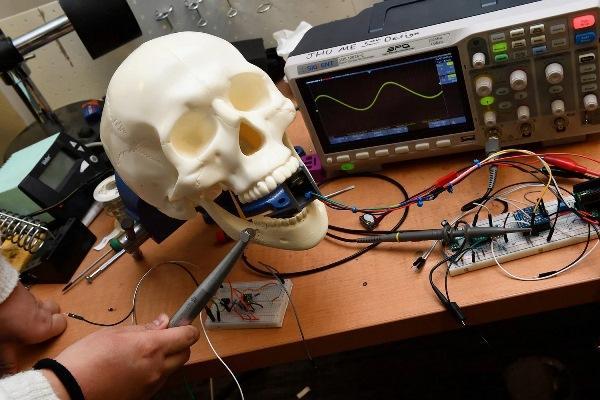Engineering students at Johns Hopkins University in Baltimore and a Florida dentist have developed a prototype device that reduces the sound of a drill in the mouth. Based on noise-canceling technology, the device reduces vibrations occurring in the mouth and is designed to provide patients with greater comfort during dental treatment.

Tallahassee dentist Dr. Jordan Rigsby had a dental appointment himself and was surprised by how loud modern dental drills can be for patients. In a press release from Johns Hopkins University, he said: “It was truly unpleasant. Modern dental drills are very quiet, but due to conduction from bone to ear, the sound is quite loud for many patients. And I understood why patients were afraid of this sound almost as much as they were worried about pain during dental procedures.”
Dr. Rigsby created an experimental model that used noise reduction principles and contacted the university's design program to see if students could help refine it. Mechanical engineering specialists Conor Allan, Elizabeth Dolan, David Pike and Daniel Schenkelman developed Dr Rigsby's idea using a model of the skull and their own mouths as sound conductors.
“This is a complex problem, and there is no commercially available solution,” said Daniel Schenkelman, an engineering student.
Schenkelman told university officials: “The prototype device picks up vibrations and creates an “anti-noise” wave, which is the exact opposite of unwanted noise.” He explained that noise and noise protection cancel each other out, “like adding -1 to 1, which would equal zero.”
The university said the prototype device differs from headphones, a technology most associated with noise cancellation, in that headphones pick up vibrations in the air, while the prototype device dampens vibrations in the mouth.
